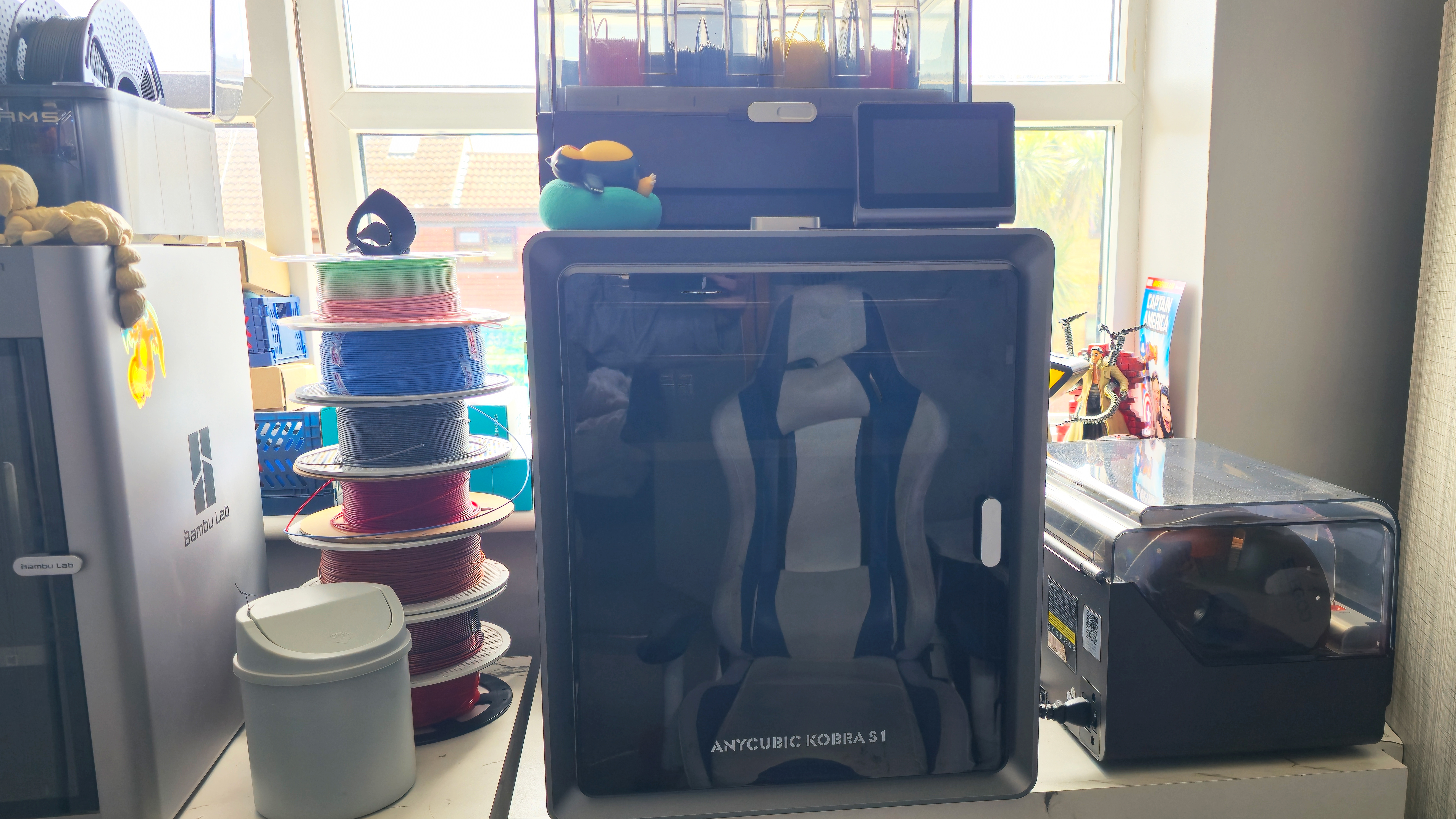5 impressive new Unreal Engine 5.5 features
Epic's latest game engine update has Unity in its sights.
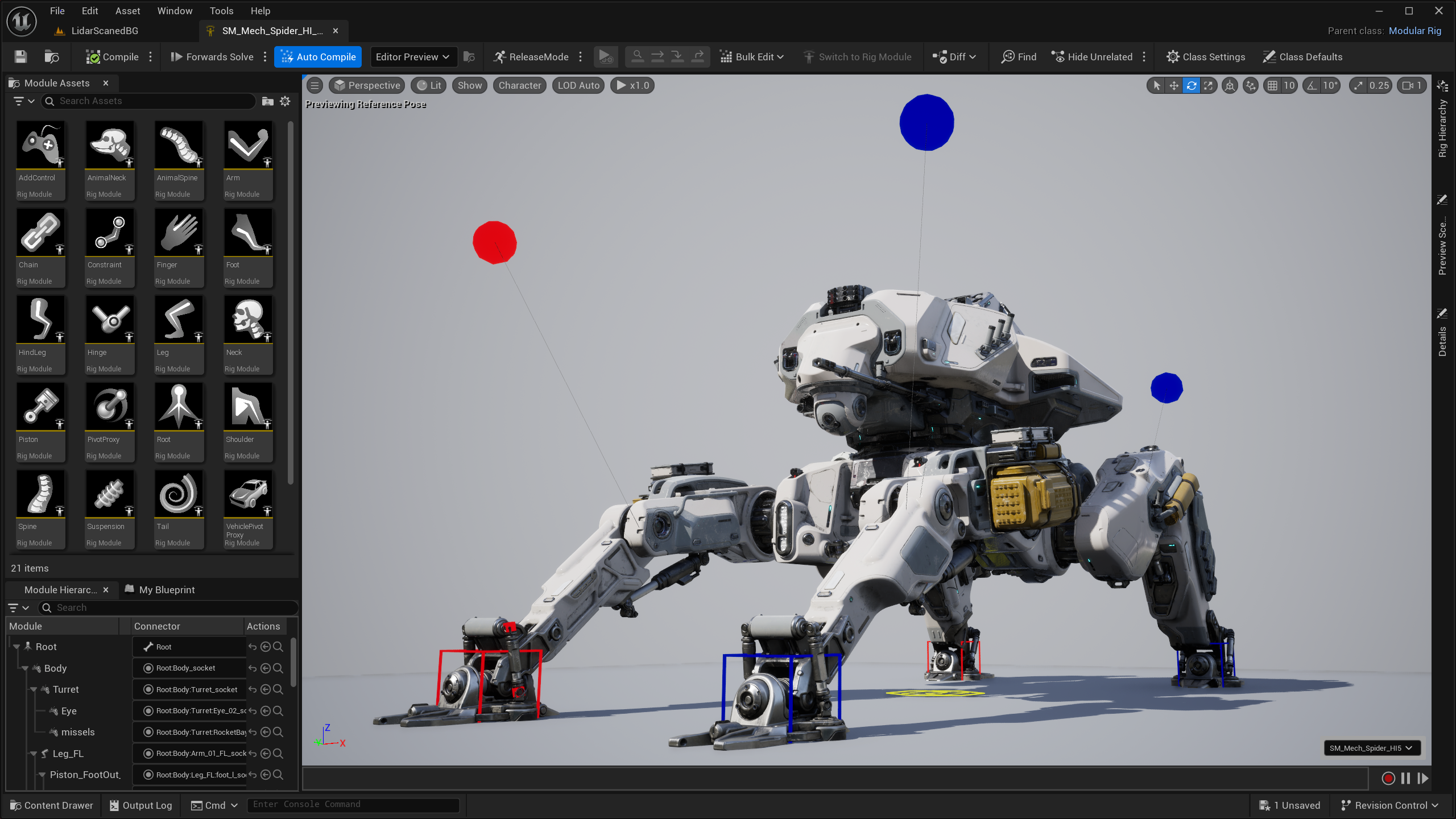
Unreal Engine 5.5 just released and it's seriously taking the fight to Unity. With significant improvements in the mobile game development arena, Unreal Engine is attempting to seriously dislodge Unity's stronghold on mobile gaming.
Unreal Engine's dominance across various features is well documented. We've recently written about stunning Unreal Engine 5 tech demo and the power of gaussian splatting. I've also witnessed in the last few years a growing trend towards real-time engines over traditional digital content creators.
Additionally, the new Unreal Engine 5.5 update boasts improvements across animation authoring, rendering, and virtual production. Changes across these areas bring the real-time engine into even greater production-readiness.
If you're interested in creating using Unreal Engine then you should take a look at our everything you need to know about Unreal Engine guide as well as our latest Unreal Engine news.
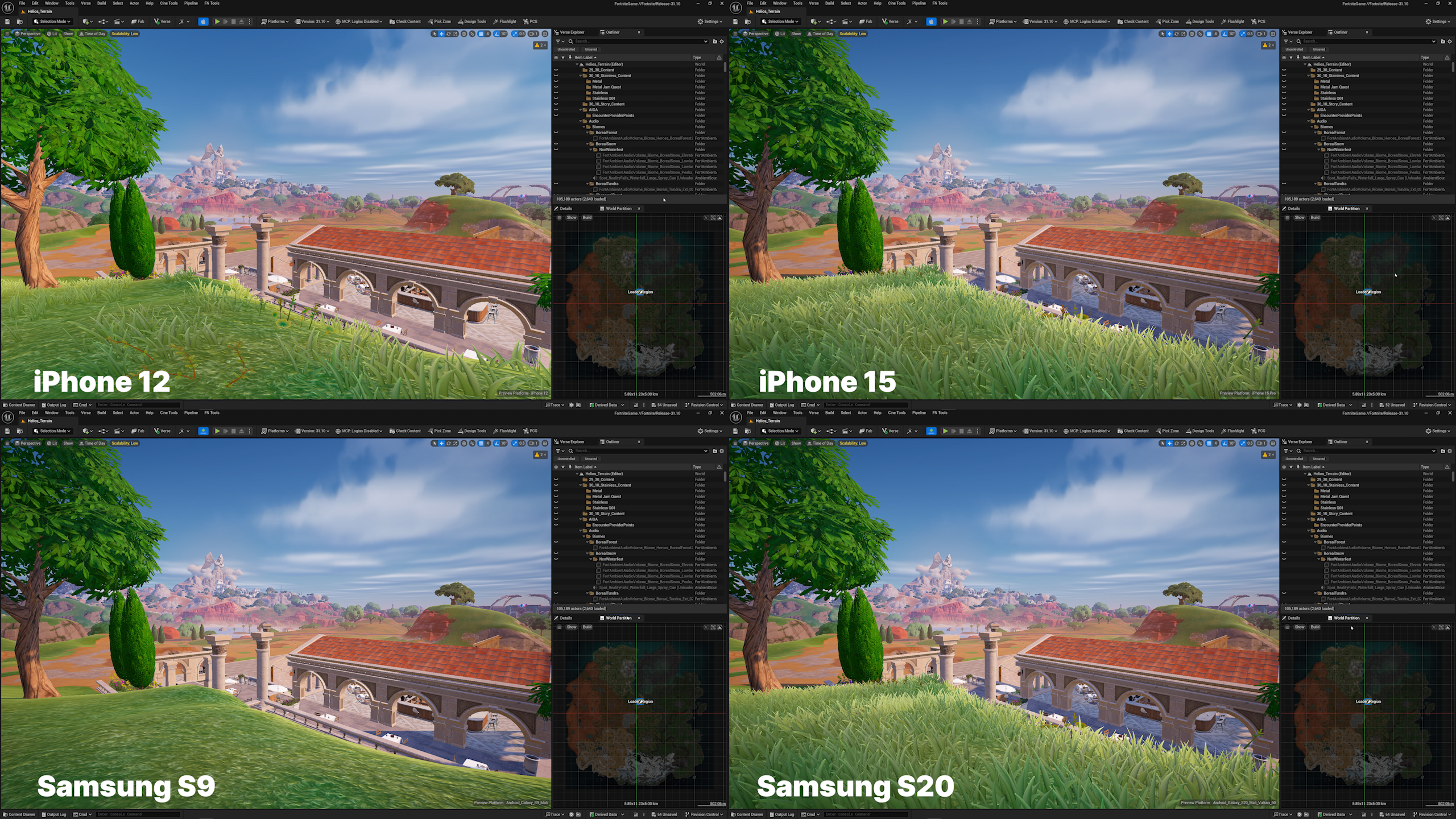
01. Mobile game development
Unreal Engine, in most people's estimations, has always played second fiddle to Unity in the realm of mobile game development. Epic Games is determined to address this in their latest version 5.5 of Unreal Engine.
Much of the new additions centre around the Mobile Forward Renderer that boasts greater visual fidelity on the platform. New features include D-buffer decals, rectangular area lights, capsule shadows, moveable IES textures for points and spotlights, volumetric fog, and Niagara particle lights. These broad improvements help strengthen Unreal Engine's offering.
Improvements have also been made to the Mobile Previewer, which is ideal for mobile games content development. Practically speaking, this means users can both capture and preview specific Android device profiles.
Get the Creative Bloq Newsletter
Daily design news, reviews, how-tos and more, as picked by the editors.

02. Rendering improvements
No Unreal Engine update would be complete without a slew of rendering engine improvements. Lumen continues to go from strength to strength with the new ability to run at 60Hz on platforms for which there is hardware support. All of this is made possible thanks to improved hardware ray tracing (HWRT).
Additionally, Unreal Engine 5.5 has a better-than-ever path tracer, which is finally production-ready. That means we've got a wider range of support features, including new additions like sky atmosphere and volumetric clouds. It's also now got Linux support.
Alongside rendering but always related are changes to Substrate, Unreal Engine's material authoring framework. What began experimentally in version 5.2 is now in beta. Artists will need to continue caution when using it in a production context but it's not far off being ready, especially when working on nonlinear material production.
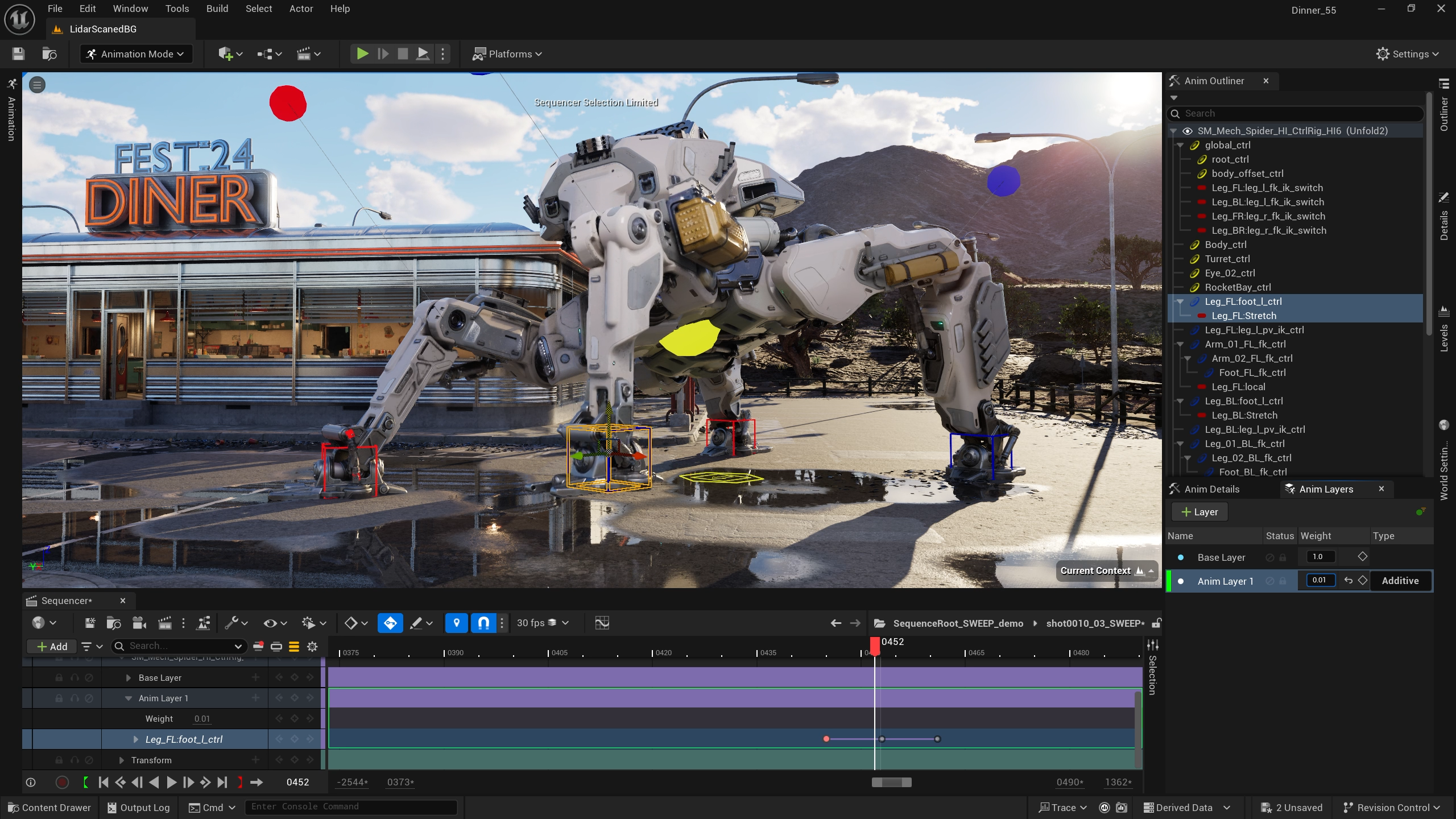
03. Animation Sequencer
Sequencer, Unreal Engine's nonlinear animation editor, receives some much-needed attention. Alongside better filtering, the interface is more intuitive with settings that are far easier to control.
Animation layers have been made non-destructive which is a significant step forward in content management that so many animators demand. Layers can be set to additive or override as well as weighted against each other. This makes it much easier to fine-tune animations without having to start all over.
And finally, we love the new ability to trigger cinematic scenarios based on player choices during gameplay. This level of control has never been seen before and helps to strengthen Unreal Engine's animation support.
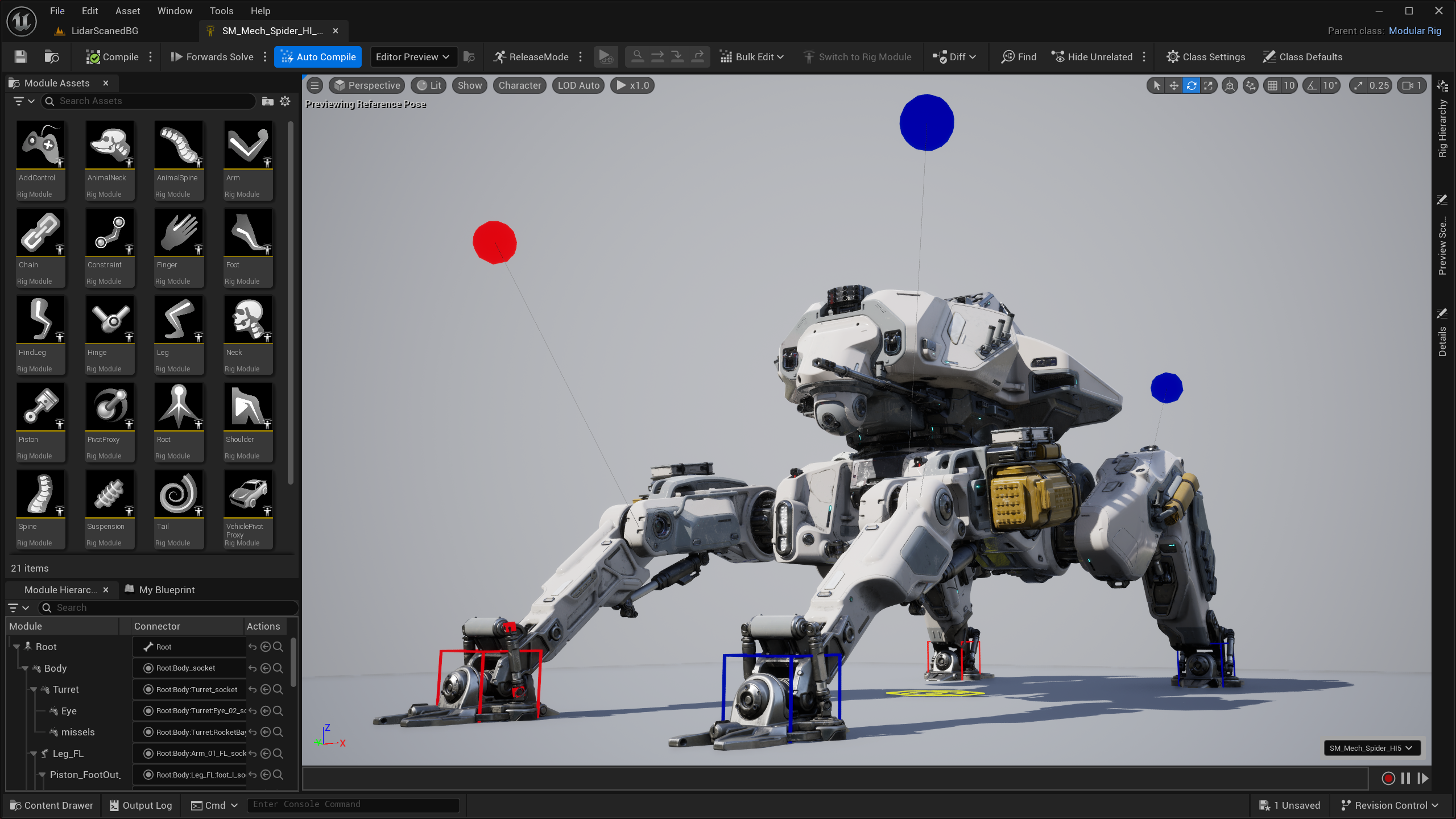
04. Animation Control Rig
Very much related to Sequencer, animation improvements continue with the animation control rig. In main, that means animators can now apply contact deformation and better cartoon-style squash-and-stretch for more realistic animation effects. Animation deformers can now easily be applied to characters in Sequencer with no trouble at all.
For animators who love an easy life, Unreal Engine now ships with an Animator Kit plugin which contains a set of ready-made Control Rigs with built-in deformers. Alongside this, the Modular Control Rig moves to Beta with a number of UI and UX improvements.
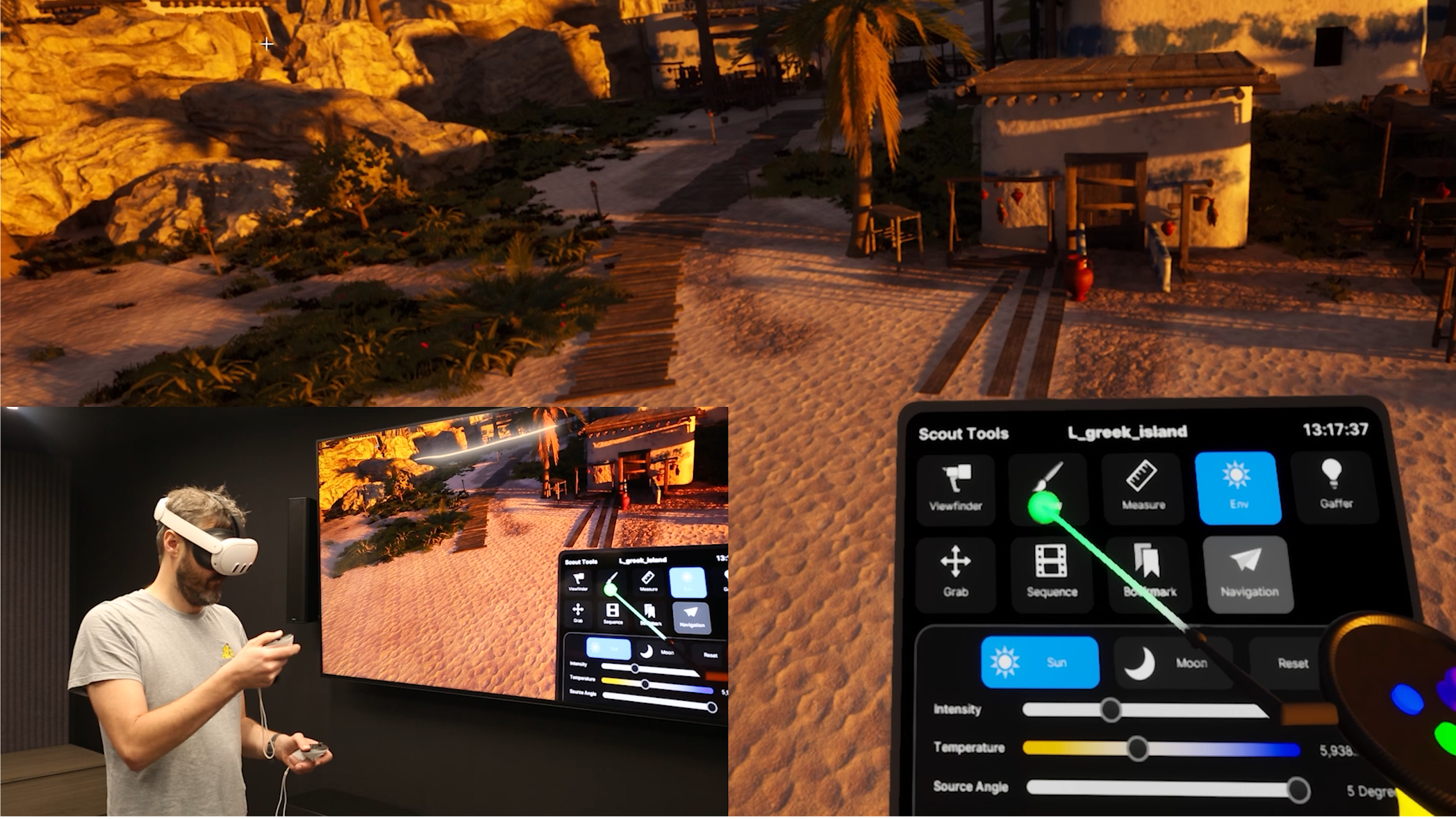
05. VR Scouting
Virtual Scouting was introduced in the previous release, Unreal Engine 5.4, so it hasn't been around for long. It's still very much a work in progress but it's showing a lot of promise. This time around, we have new opportunities for customisation via an extensive API, a new VR Content Browser, and a Transform Gizmo that is customisable via Blueprint. All of this strengthens the virtual Scouting toolset as a ready-to-go out-of-the-box experience.
For more information head over to the Unreal Engine 5 blog, where Epic details every new feature.

Thank you for reading 5 articles this month* Join now for unlimited access
Enjoy your first month for just £1 / $1 / €1
*Read 5 free articles per month without a subscription

Join now for unlimited access
Try first month for just £1 / $1 / €1

Paul is a digital expert. In the 20 years since he graduated with a first-class honours degree in Computer Science, Paul has been actively involved in a variety of different tech and creative industries that make him the go-to guy for reviews, opinion pieces, and featured articles. With a particular love of all things visual, including photography, videography, and 3D visualisation Paul is never far from a camera or other piece of tech that gets his creative juices going. You'll also find his writing in other places, including Creative Bloq, Digital Camera World, and 3D World Magazine.
